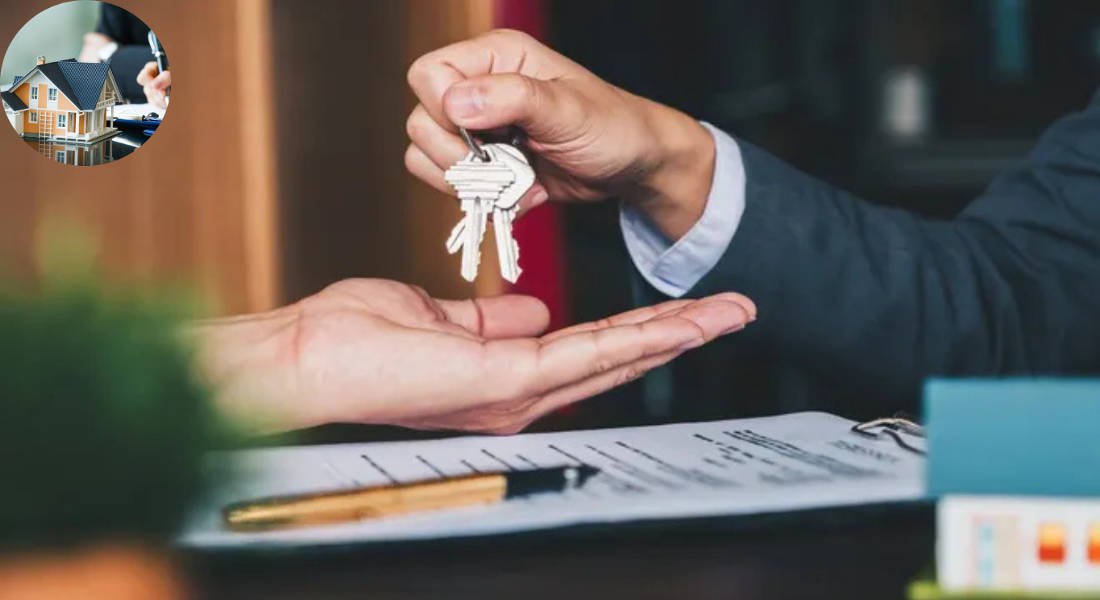Renting houses can be a rewarding venture, whether you’re looking to invest or need to generate some extra income. However, before you dive into the world of renting, it’s essential to understand the licensing requirements that come along with it.
Renting houses is not just about finding tenants and collecting rent; it’s also about maintaining a healthy relationship with them. It’s a business that requires a solid understanding of both legal and practical aspects. Before you start renting, it’s crucial to know if you need a real estate license.
Understanding Real Estate Licensing Basics

What is a Real Estate License?
A real estate license is a legal credential that enables individuals to engage in real estate transactions, including buying, selling, and renting properties. The purpose of this license is to ensure that agents and property managers adhere to professional standards and laws.
General Purpose and Scope of a Real Estate License
The primary function of a real estate license is to protect consumers. Licensed real estate professionals must complete training and pass exams that cover local laws, ethics, and best practices. This knowledge helps ensure that clients receive informed and ethical representation.
Difference Between Owning and Managing Rental Properties vs. Acting as an Agent or Property Manager
It’s important to differentiate between owning rental properties and acting as a real estate agent or property manager. If you own a rental property, you typically don’t need a license to rent it out. However, if you’re managing properties for others, a permit is usually required.
Do You Need a Real Estate License to Rent Houses?

Renting Your Own Property: License Requirements
If you plan to rent your own property, generally, you do not need a license. Most states allow homeowners to rent their properties without requiring a real estate license as long as they comply with local laws.
You may also read (how to determine ucc applicability to home real estate).
Renting Property on Behalf of Others: When a License is Required
On the flip side, if you are renting properties on behalf of others, you will likely need a real estate license. This includes activities like advertising, tenant screening, and collecting rent on behalf of the property owner.
Explanation of Property Management Activities That Require Licensing
Property management involves various tasks that can trigger licensing requirements. Here are some key activities:
- Advertising: Promoting rental properties on behalf of others.
- Tenant Screening: Evaluating potential tenants.
- Rent Collection: Handling payments from tenants.
Jurisdictional Variations and Why Local Laws Matter
Laws regarding real estate licensing can vary widely by state and even by city. It’s vital to check your local regulations to determine what’s required in your area.
Rental Licenses vs. Real Estate Licenses: What’s the Difference?
Definition and Purpose of Rental Licenses or Permits
A rental license is a local permit that landlords must obtain to legally rent out a property. This is distinct from a real estate license, which is required for agents and property managers.
Why Some Cities/States Require Rental Licenses for Landlords
Many jurisdictions require rental licenses to ensure that properties meet safety and health standards. This helps protect tenants and the community.
Typical Rental License Requirements
Standard requirements for obtaining a rental license include:
- Inspections: Your property may need to pass safety inspections to ensure compliance.
- Safety Compliance: Adhering to building codes and safety regulations.
- Fees: There may be application or renewal fees associated with obtaining or renewing the license.
Examples of Cities with Strict Rental Licensing
Cities like Los Angeles and Chicago have stringent rental licensing requirements that landlords must comply with.
How to Legally Rent Out Your Property Without a Real Estate License

Renting Your Own House Without a License: Legal Considerations
If you’re renting your own home, you can typically do so without a license. However, you must still comply with local laws regarding health and safety.
For Sale By Owner (FSBO) and For Rent By Owner (FRBO) Explained
FSBO and FRBO are terms used to describe property owners who manage the sale or rental of their own properties without the assistance of a real estate agent. This approach can save you money on commissions, but it is essential to understand the applicable laws.
When It Is Legal to Rent Without a License
You can usually rent without a license if:
- You are renting your own property.
- You’re renting to family members or friends in certain jurisdictions.
Importance of Complying With Local Rental Laws and Regulations
Even without a license, it’s crucial to comply with local regulations to avoid fines and legal issues.
Benefits of Having a Real Estate License for Rental Property Owners
Advantages of Obtaining a License Even if Not Required
While you may not need a real estate license to rent your own property, having one can offer several benefits, including:
- Cost Savings: Manage your own rentals without paying commissions.
- Knowledge: Gain a deeper understanding of landlord-tenant laws and market trends to inform your decisions.
- Credibility: Enhance your reputation as a serious landlord.
You may also read (understanding plumbing permits what homeowners should know).
Better Knowledge of Landlord-Tenant Laws and Market Trends
Licensed professionals have access to training and resources that keep them informed about changes in laws and market conditions, enabling them to manage properties more effectively.
Enhanced Credibility and Ability to Expand Rental Business
Having a license can enhance your credibility, making it easier to attract tenants and expand your rental business.
Steps to Obtain a Real Estate License (If Needed)

Basic Requirements
To obtain a real estate license, you typically need to meet the following requirements:
- Age: Most states require you to be at least 18 years old.
- Education: Completing a pre-licensing course is often necessary.
- Exams: You must pass a licensing exam.
Typical Licensing Process Overview
- Complete required pre-licensing education.
- Pass the state licensing exam.
- Submit a license application along with any required fees.
Continuing Education and Renewal Requirements
Most states require license holders to complete continuing education courses to maintain an active license. This ensures that you stay informed about significant industry developments.
Resources for Licensing Information by State
Check your state’s Real Estate Commission website for specific information about obtaining a license in your area.
How to Acquire a Rental License or Permit for Your Property
Step-by-Step Guide to Applying for a Rental License
- Research Local Requirements: Familiarize yourself with the specific requirements for rental licenses in your city or state.
- Prepare Documentation: Gather necessary documents, such as proof of identity and property ownership.
- Schedule an Inspection: If needed, arrange for a safety inspection of your property.
- Submit Application: Please fill out and submit the rental license application, along with any applicable fees.
Common Requirements
- Application: Complete the rental license application form.
- Inspection: Pass any required inspections.
- Fees: Pay the necessary application and renewal fees.
Importance of Property Safety and Compliance With Building Codes
Ensuring your property meets safety standards is vital not just for obtaining a license but also for providing a safe living environment for your tenants.
Potential Penalties for Renting Without Required Rental Licenses
Failing to obtain a rental license can result in fines, legal disputes, or even the inability to rent or sell your property in the future.
Legal Risks and Consequences of Renting Without Proper Licenses
Fines and Penalties for Unlicensed Rental Activity
Renting out your property without the required licenses can result in hefty fines and penalties, which can quickly add up.
Potential Eviction or Legal Disputes With Tenants
Renting without proper licenses can also expose you to legal disputes with tenants, including potential eviction proceedings.
Impact on Future Ability to Rent or Sell Property
Having a history of unlicensed rental activity can impact your ability to rent or sell properties in the future, as it may raise red flags for prospective buyers or renters.
Importance of Consulting Legal Experts or Local Agencies
If you have questions about licensing requirements, it’s wise to consult with legal experts or local housing agencies to ensure compliance with all regulations.
Tips for Successful and Compliant House Renting
Research Local Laws and Licensing Requirements Thoroughly
Before renting, take the time to understand local laws and what licenses you may need. This knowledge is crucial for success.
Maintain Property Safety and Habitability Standards
Your property should be safe and habitable. Regular maintenance can prevent issues and ensure tenant satisfaction.
Draft Clear Lease Agreements
A well-drafted lease agreement can clearly outline the responsibilities of both tenants and landlords, thereby reducing the likelihood of disputes.
Consider Hiring Licensed Professionals
If you’re managing multiple properties or third-party rentals, consider hiring licensed property managers to ensure compliance with all relevant regulations.
Keep Up-to-Date With Changes in Real Estate and Rental Regulations
Stay informed about changes in laws and regulations that may affect your rental business. This proactive approach can save you from potential legal troubles.
You may also read (do tiny homes require building permits everywhere).

